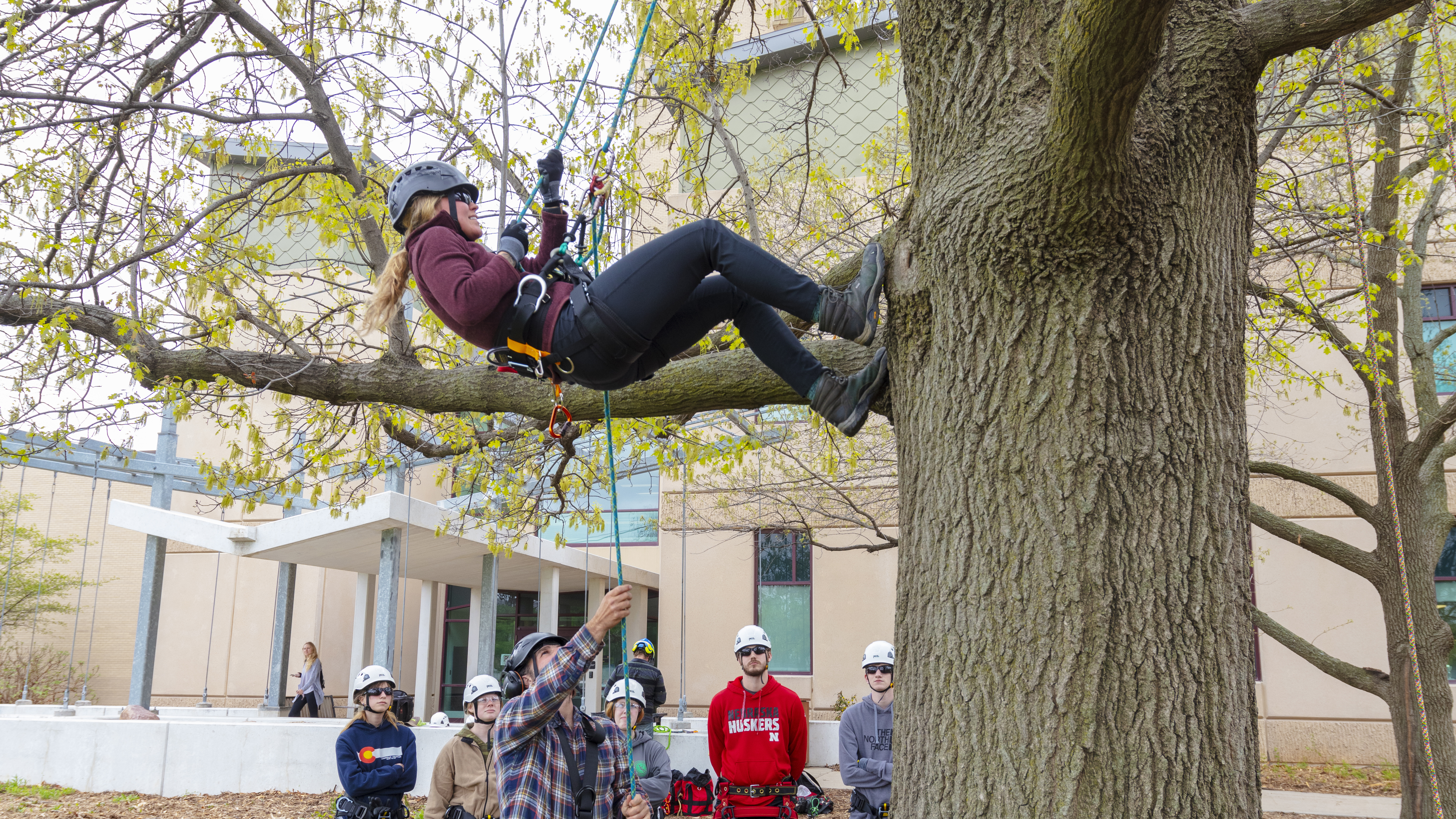
With a unanimous vote by the state, a bachelor’s degree in regional and community forestry was approved for the School of Natural Resources at the University of Nebraska-Lincoln. Students will be able to declare the major — and cement their Tree Husker status — in Fall 2020.
Students in the program will learn to be leaders in tree management and planning in a way that addresses natural resources challenges, including the emerald ash borer and climate change, while also growing vibrant, livable communities. The program, developed by Eric North, an assistant professor of practice with the School of Natural Resources, offers specializations in urban forestry management and arboriculture.
It becomes one of few university programs west of the Mississippi River to focus on community forestry.
“Our new program will educate and inspire students to plan and manage trees in our rural and urban landscapes to improve the communities we all live in,” North said. “Employers around the state and the nation are eager to hire our future graduates to speak for the trees.”
Students pursing the major will gain hands-on resume-building experience, including tree climbing, pruning and measuring trees, and how to write city-planning guides, with an emphasis on tree maintenance, health and diversity. The program, developed with input from the industry and support from the Nebraska Forest Service and the U.S. Forest Service, also emphasizes the importance of experiential learning through internships with state or federal agencies or private businesses.
“We are excited to offer a new degree pathway in Regional and Community Forestry,” said Tiffany Heng-Moss, dean of the College of Agricultural Sciences and Natural Resources. “This degree program is multidisciplinary and will prepare our graduates for career pathways in urban forest management, arboriculture, urban wildlife interface management, and the green infrastructure industry. We appreciate the partnership with state agencies, nonprofits, and the private sector to enhance internships and other experiential learning opportunities for our students.”
Students wishing to declare the regional and community forestry major can make a request with their university adviser.
Nebraska’s forest history
Though Nebraska is known for its rolling prairies, its residents have been planting trees since their arrival on Nebraska soil. In 1872, Arbor Day was created, and in 1895, the Nebraska legislature passed a bill for the state to be known as The Tree Planters due to the early efforts of pioneers to plant millions of trees.
By 1903, the university had established a forestry department and degree, and though it dissolved in 1915, the university continued to research and provide education in windbreaks and shelterbelts. One hundred years later, the Nebraska Forest Service and the university decided to bring back forestry, but in a new way.
“We view this program as one that represents the future of trees and forest management here in the Great Plains,” said John Carroll, SNR director. “Urban forests, whether found in cities, small towns, or even around the farmstead, help to improve the quality of life of all Nebraskans. Our students will make sure we create and manage these systems in a sustainable way.”
On Feb. 5, 2020, the Nebraska Coordinating Commission for Postsecondary Education gave unanimous approval to the new major.
Learn more about it here.
Shawna Richter-Ryerson, Natural Resources